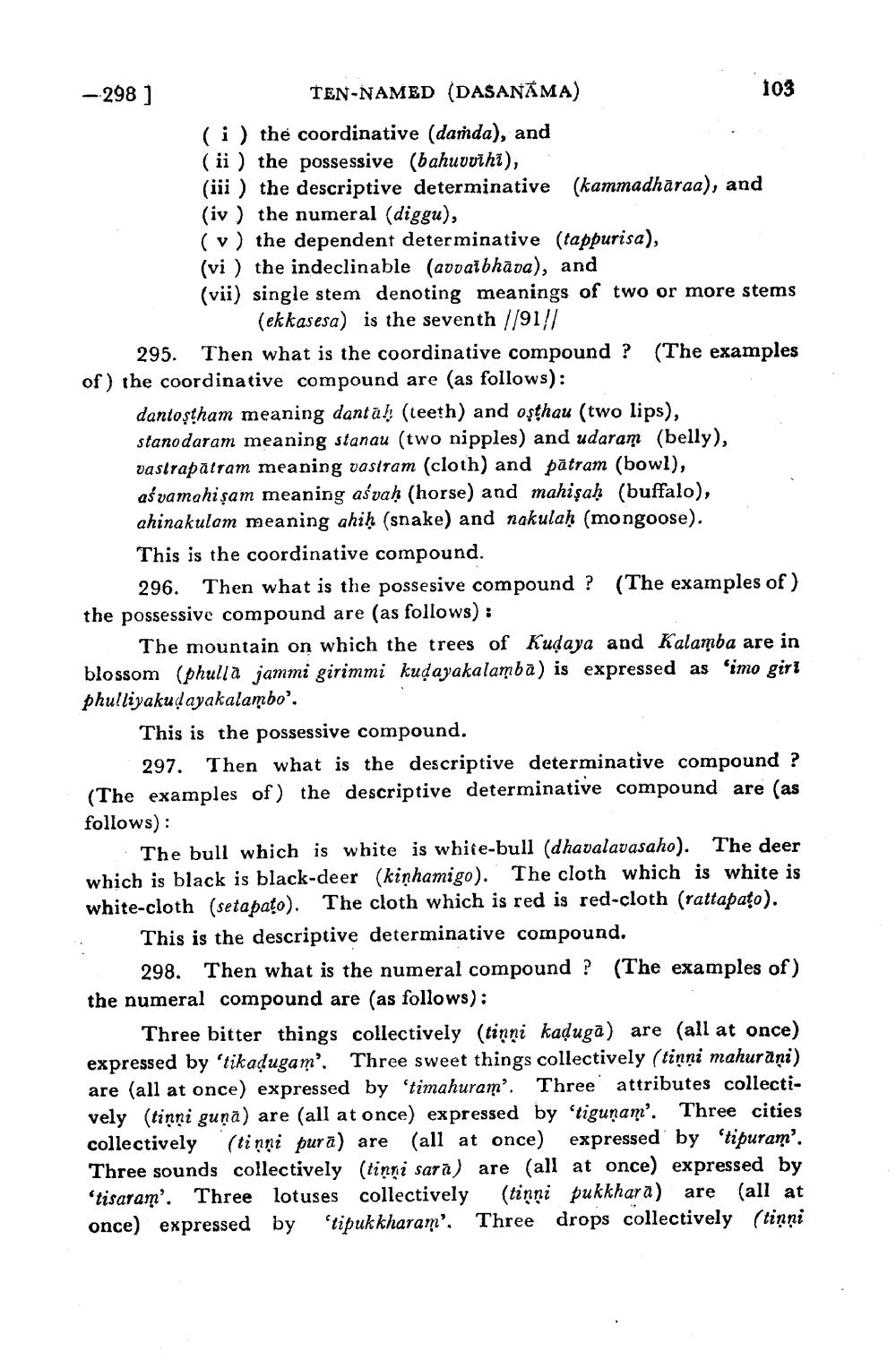________________
-2981 TEN-NAMED (DASANĂMA)
103 (i) the coordinative (daṁda), and (ii) the possessive (bahuvdihi), (iii) the descriptive determinative (kammadhāraa), and (iv) the numeral (diggu), (v) the dependent determinative (tappurisa), (vi ) the indeclinable (avvaibhāva), and (vii) single stem denoting meanings of two or more stems
(ekkasesa) is the seventh //91/ 295. Then what is the coordinative compound ? (The examples of) the coordinative compound are as follows):
dantoștham meaning dantah (teeth) and oșthau (two lips), stanodaram meaning stanau (two nipples) and udaram (belly), vastrapatram meaning vastram (cloth) and patram (bowl), asvamahi şam meaning aśvaḥ (horse) and mahişah (buffalo), ahinakulam meaning ahih (snake) and nakulah (mongoose). This is the coordinative compound.
296. Then what is the possesive compound ? (The examples of ) the possessive compound are (as follows) :
The mountain on which the trees of Kudaya and Kalamba are in blossom (phulla jammi girimmi kudayakalamba) is expressed as 'imo girl phulliyakudayakalambo'
This is the possessive compound.
297. Then what is the descriptive determinative compound ? (The examples of) the descriptive determinative compound are (as follows) :
The bull which is white is white-bull (dhavalavasaho). The deer which is black is black-deer (kinhamigo). The cloth which is white is white-cloth (setapato). The cloth which is red is red-cloth (rattapato). . This is the descriptive determinative compound.
298. Then what is the numeral compound ? (The examples of) the numeral compound are (as follows):
Three bitter things collectively (tinni kaduga) are (all at once) expressed by 'tikadugam'. Three sweet things collectively (tinni mahurāni) are (all at once) expressed by 'timahuram. Three attributes collectie vely (tinni guna) are (all at once) expressed by 'tiguņam. Three cities collectively (tinni pura) are (all at once) expressed by 'tipuram'. Three sounds collectively (tinni sara) are (all at once) expressed by 'tisaram'. Three lotuses collectively (tinni pukkhara) are (all at once) expressed by 'tipukkharam'. Three drops collectively (tinni




